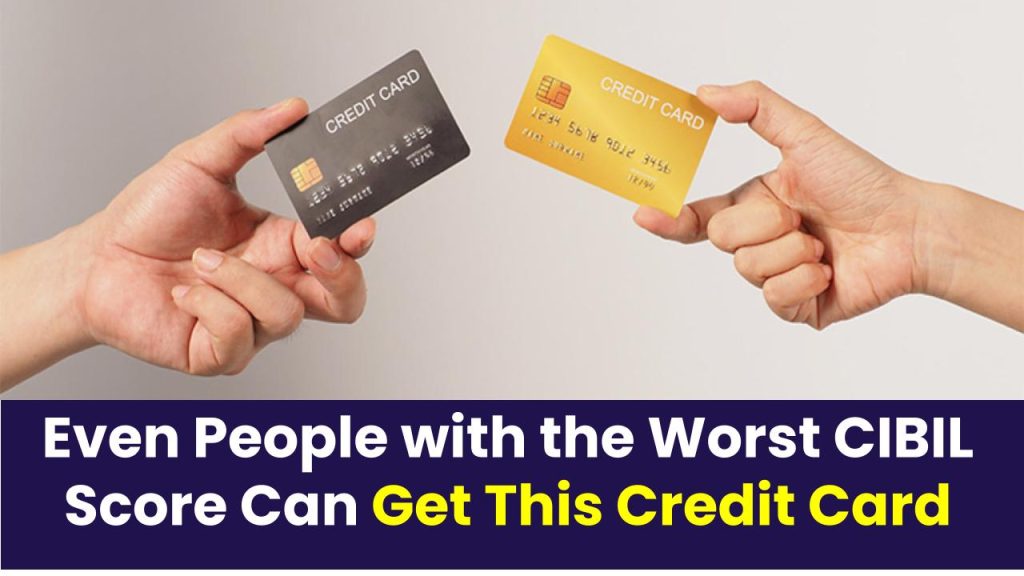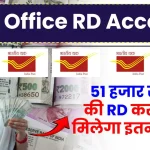
If you’ve ever been rejected for a credit card because of a low CIBIL score, you’re not alone. In India, a bad credit score—anything below 600—can slam the door shut on most traditional credit card applications. But here’s the good news: even people with the worst CIBIL score can get a credit card—thanks to secured credit cards offered by major Indian banks.
Yes, that’s right. Banks like SBI, ICICI, Axis, and IDFC FIRST Bank offer credit cards that don’t depend on your credit history. Instead, they’re backed by a fixed deposit (FD), and you can get approval almost instantly. These cards are not just lifelines for people trying to rebuild their credit—they’re practical tools for everyday use.
This Credit Card: Banks Give Approval Quickly
| Feature | Details |
|---|---|
| Who can apply | Anyone—even with a CIBIL score below 500 |
| Approval time | Within 24–48 hours (in most cases) |
| Type of card | Secured credit card (backed by FD) |
| Popular cards | SBI Unnati, ICICI Bank Instant Platinum, IDFC FIRST WOW!, Axis Insta Easy |
| Minimum FD required | ₹5,000 – ₹50,000 depending on the bank |
| Annual fees | Many cards offer zero annual fees for the first few years |
| Credit limit | 75%–100% of your FD amount |
| Benefits | Cashback, fuel surcharge waiver, accident cover, reward points |
Even if your CIBIL score is in the red, there’s no need to panic. Secured credit cards are not only easy to get approved for but also provide a smart, practical way to rebuild your financial life. With minimal effort, timely payments, and a bit of patience, you can turn your credit score around—and regain financial freedom.
What Is a CIBIL Score—and Why It Matters
The CIBIL score is a three-digit number ranging from 300 to 900, calculated by TransUnion CIBIL, India’s leading credit bureau. Banks and financial institutions use this score to decide whether to approve your loan or credit card application.
- A score above 750 is considered excellent.
- A score below 600 is typically viewed as poor.
Factors that hurt your CIBIL score:
- Late payments or EMIs
- Loan defaults
- High credit utilization
- Multiple rejected credit applications
If your score is low, banks usually hesitate to offer unsecured credit cards. That’s where secured credit cards come in.
see also: What Options Do You Have After PPF Maturity?
What Is a Secured Credit Card?
A secured credit card is backed by a fixed deposit (FD). Instead of checking your credit history, the bank gives you a card based on the amount you lock in the FD.
How it works:
- You open a fixed deposit—say ₹25,000.
- The bank issues you a credit card with a limit of up to 90% of that amount.
- You use the card like any other credit card.
- If you default, the bank can recover the amount from your FD.
It’s a win-win: you get access to credit, and the bank reduces its risk.
Best Credit Cards for Low or Poor CIBIL Score in India
Here are some of the most popular secured credit cards in India in 2025 that you can get approved for—even with zero credit history or a bad CIBIL score.
SBI Card Unnati
- Minimum FD: ₹25,000
- Annual Fee: Nil for 4 years
- Features:
- 1% fuel surcharge waiver
- Cashback offers
- Accepted globally
ICICI Bank Instant Platinum Credit Card
- Minimum FD: ₹20,000–₹50,000
- Annual Fee: Nil
- Features:
- Up to 2.5% cashback
- Movie discounts via BookMyShow
- Low interest on rollover
IDFC FIRST WOW! Credit Card
- Minimum FD: ₹20,000
- Annual Fee: Nil
- Features:
- Free roadside assistance
- Personal accident insurance
- EMI offers on purchases
Axis Bank Insta Easy Credit Card
- Minimum FD: ₹10,000+
- Annual Fee: Nil
- Features:
- Credit limit up to 80% of FD
- Fuel surcharge waiver
- Accepted internationally
How to Apply for a Secured Credit Card
Step 1: Choose your card
Pick a card that fits your financial goals and FD capacity.
Step 2: Open a fixed deposit
Visit the bank branch or apply online to create an FD.
Step 3: Submit KYC documents
Usually includes:
- PAN card
- Aadhaar card
- Passport-size photo
Step 4: Card approval
Once the FD is active, your secured card is issued in 24–48 hours.
Step 5: Use it responsibly
Pay your bills on time, stay within limits, and avoid cash advances.
Why Use a Secured Credit Card?
Here’s how a secured card can boost your financial health:
Rebuild your credit score
Each on-time payment is reported to CIBIL and helps improve your credit.
No need for credit history
Even first-time users or defaulters can get one.
Safe for the bank, helpful for you
Since it’s backed by FD, approval is faster and less risky.
Good spending control
With a pre-set limit, it helps manage spending habits.
What to Watch Out For
While secured credit cards are useful, you should be aware of:
- Low credit limit: Usually 75–90% of your FD
- No reward programs: Not all secured cards offer reward points
- Interest charges: Like any credit card, interest is charged on unpaid balances
But overall, the pros far outweigh the cons—especially if your goal is to improve your CIBIL score.
Real Example: How Rohit Improved His Credit Score
Rohit, a 29-year-old software tester in Pune, had a CIBIL score of 522 due to missed loan EMIs in 2022. He applied for an SBI Unnati Credit Card backed by a ₹25,000 FD in early 2024.
- He paid bills in full every month
- Avoided going over 30% of his credit limit
- Checked his CIBIL report quarterly
By March 2025, his score had jumped to 703—qualifying him for unsecured credit cards and better loan deals.
see also: LIC Smart Pension Plan: On Investing ₹1 Lakh, You Will Get ₹12,000 Every Year for Life
This Credit Card Banks Give Approval Quickly FAQs
Q. Can I get a credit card with a CIBIL score below 500?
Yes, you can. Secured credit cards from banks like SBI, ICICI, Axis, and IDFC FIRST do not require a high CIBIL score.
Q. Do I need a job to get a secured credit card?
No. Since it’s backed by a fixed deposit, employment status is not a major factor.
Q. Is my FD locked?
Yes, your FD is lien-marked (locked) for the credit card duration. You cannot withdraw it unless the card is closed or upgraded.
Q. How long does it take to improve my CIBIL score?
With consistent repayment, you can see improvements in 6–12 months.
Q. Can I convert it to an unsecured credit card later?
Yes. Some banks like SBI and ICICI offer upgrades if you maintain a good payment record.











